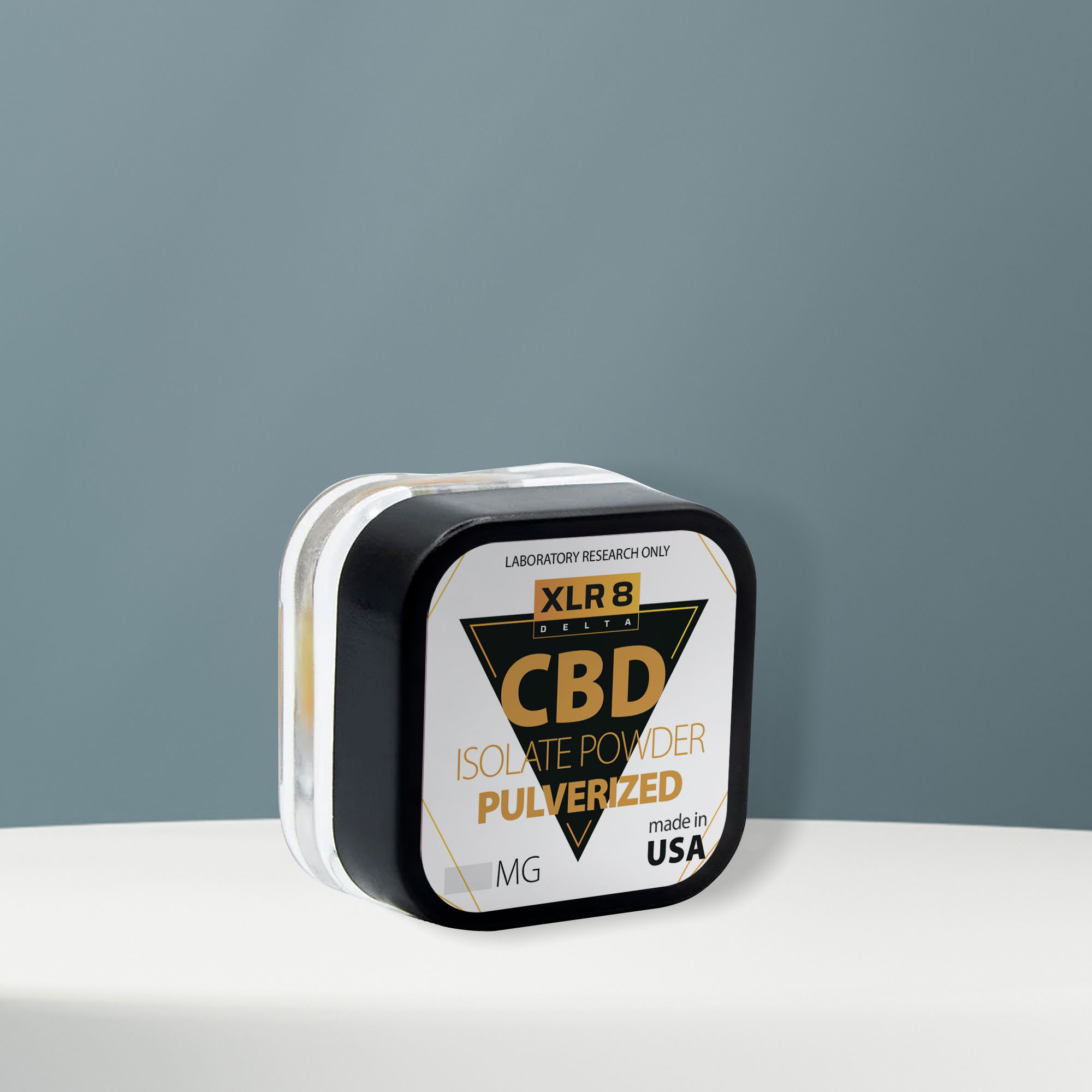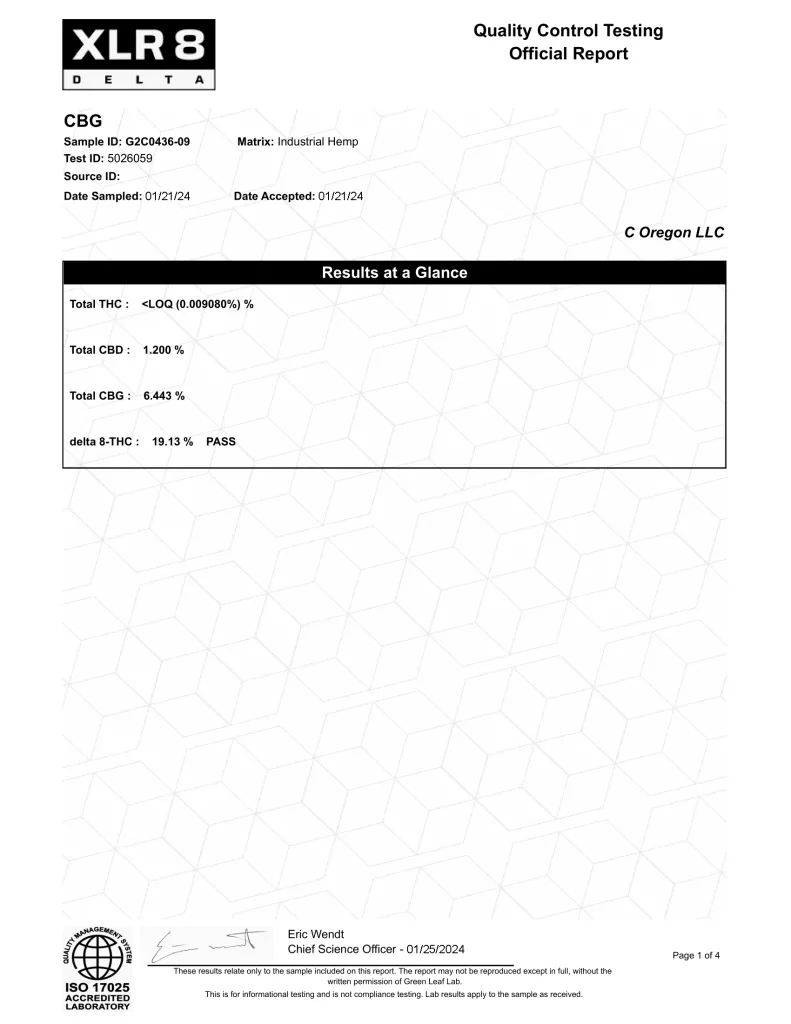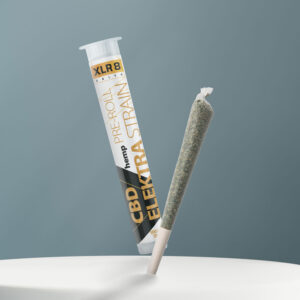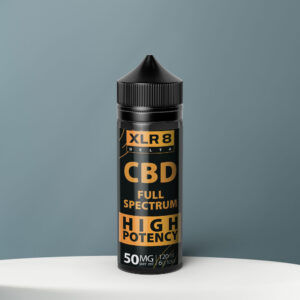Description
CBD Isolate Powder – Product Details
What is Cannabidiol?
The second most common active component in Cannabis sativa (marijuana) plants is CBD, often known as cannabidiol. While CBD is a crucial component of medical marijuana, it is either produced in a laboratory or is taken straight from the hemp plant, a relative species of the marijuana plant. [R]
Cannabidiol is a colorless crystalline solid at ambient temperature. In the presence of air and very basic media, it oxidizes to a quinone. In the presence of acidic media, it cyclizes to Tetrahydrocannabinol (THC). [R]
While most CBD in the market contains Tetrahydrocannabinol, also known as THC, is a psychotropic substance present in cannabis plants. It is the primary chemical responsible for the “high” felt after consuming cannabis. According to investigations, CBD isolate powder is a promising chemical derived from hemp extract with significant potential because it has no psychoactive effects like THC. [R]
There are three different kinds of CBD: isolate, full-spectrum, and broad-spectrum. [R]
- Full spectrum CBD: This kind of CBD includes all of the naturally occurring cannabinoids (including THC), terpenes, and flavonoids that are present in the cannabis plant. The “entourage effect,” or the interaction of two or more substances to amplify the effects of the others, is thought to occur when full-spectrum CBD is used.
- Broad-spectrum CBD is similar to full-spectrum CBD in that it includes all of the naturally occurring substances in the cannabis plant except for THC.
- CBD powder isolates: This kind of CBD is the purest form available because it solely includes CBD and no additional cannabinoid components.
How Does Cannabidiol Work?
The body’s endocannabinoid system (ECS), a complex cell-signaling system that controls a number of physiological functions including mood, hunger, pain perception, and immunological function, interacts with CBD. Endocannabinoids, which are cannabinoids produced by the body, cannabinoid-degrading enzymes, and cannabinoid receptors make up the ECS. [R]
Although it has a much lower binding affinity than THC, CBD binds to cannabinoid receptors, primarily the CB1 and CB2 receptors, to interact with the ECS. CBD can also have an indirect impact on the ECS by regulating the activity of enzymes that break down endocannabinoids and by activating different body receptors. [R]
Because CBD, or cannabidiol, does not directly bind to the CB1 cannabinoid receptors in the brain that are responsible for the psychoactive effects of THC, it does not result in a “high” or altered state of consciousness. Although CBD does have a weak affinity for CB1 receptors, this affinity is insufficient to cause the receptors to become activated. Instead, CBD influences the activity of CB1 and CB2 receptors as well as other bodily receptors, like serotonin receptors, to interact with the endocannabinoid system (ECS) of the body. [R]
It is thought that CBD’s medicinal effects, including pain alleviation, anxiety reduction, and neuroprotection, result from its interaction with the ECS. [R]
Cannabidiol Research
Numerous animal and human studies have been conducted on the potential application of Cannabidiol. Below are some of the relevant findings:
CBD on Osteoarthritis
One study aimed to determine the pharmacokinetics, safety, and efficacy of broad-spectrum cbd oil CBD oils in dogs with osteoarthritis. The veterinary assessment showed decreased pain during CBD trials. Owners reported no negative effects, however, serum chemistry revealed a rise in alkaline phosphatase during the CBD study. According to the study, a dosage of 2 mg/kg of CBD twice a day may assist boost comfort and activity in dogs with OA. [R]
Additionally, a 90-day pilot clinical trial was to assess the impact of a full-spectrum hemp extract and hemp seed oil product on dogs with chronic maladaptive pain primarily caused by osteoarthritis. A total of 37 dogs were enrolled, and 32 completed the study. Physical examinations, pain palpitations, metabolic profiles, and owner interviews were conducted at the beginning and biweekly throughout the study. Of the 32 dogs that completed the study, 30 demonstrated improved pain support, and the addition of the CBD oil resulted in the reduction of the gabapentin dose for 21 of the 23 dogs taking it. The study concluded that hemp-derived CBD oil positively affects dogs with chronic maladaptive pain, reducing pain and improving mobility and quality of life. [R]
CBD on Alzheimer’s Disease
Alzheimer’s Disease is a progressive illness that starts with minor memory loss and may impair one’s capacity to converse and react to their surroundings. [R]
The ability to distinguish between a familiar object and a new one, as well as watching the mice’s activity, were used to measure CBD’s effect on brain function in the mouse model of early-onset Alzheimer’s disease. Researchers found that a two-week trial of high doses of CBD improved cognition in an animal model of early-onset familial Alzheimer’s and helped restore the activity of two proteins crucial to lowering the buildup of beta-amyloid plaque, a hallmark of Alzheimer’s disease. [R]
CBD on Epilepsy
A randomized blinded controlled clinical trial was to assess the effect of oral cannabidiol (CBD) administration in addition to conventional antiepileptic trials on seizure frequency in dogs with intractable idiopathic epilepsy. In conclusion, whereas dogs in the CBD group experienced a considerable reduction in seizure frequency, the proportion of responders was comparable between groups. The study suggests that additional research is warranted to determine whether a higher dosage of CBD would be effective in reducing seizure activity by ≥ 50%. [R]
CBD on Schizophrenia (SCZ)
There is growing interest in the potential use of cannabidiol (CBD) as a novel pharmacological target for possible help in schizophrenia. Small-scale studies with CBD trials of test subjects with psychotic symptoms have shown promising results, suggesting that CBD may be a well-tolerated antipsychotic compound. However, larger randomized trials will be necessary to confirm these findings and to evaluate the potential of CBD for schizophrenia. [R]
Mice, another commonly used model, involves the administration of dopamine receptor agonists, such as amphetamine or dexamphetamine, to induce psychomotor agitation, which is a frequent symptom in individuals with schizophrenia. Antipsychotic drugs are known to modulate this drug-induced hyperactivity. Studies have found that high doses of CBD can reduce amphetamine- and dexamphetamine-induced motor hyperactivity in rodents, without causing additional motor effects. CBD has also been shown to normalize ketamine-induced motor hyperactivity when given chronically, although not acutely. It is interesting to note that CBD did not induce catalepsy, which is consistent with the profile of atypical antipsychotics. [R]
CBD on Post-Traumatic Stress Disorder (PTSD)
The benefit of oral cannabidiol (CBD) administration on symptoms of post-traumatic stress disorder (PTSD) in 11 adult test subjects. The study found that 91% of the test subjects experienced a decrease in PTSD symptom severity. CBD was generally well tolerated, and no test subjects discontinued the process due to side effects. The study implies that administering oral CBD in addition to standard psychiatric care may be associated with PTSD symptom reduction in test subjects with PTSD and that CBD may provide relief for test subjects who have frequent dreams as a PTSD symptom. [R]
Additionally, a research group found that giving CBD alone or in combination with sertraline significantly decreased fear conditioning, anxiety-like behaviors, and long-term abnormalities in gene expression in the HPA axis, ECS, and serotonin systems in a new mouse model of PTSD. These results attest to the effectiveness of CBD in reducing the short- and long-term effects of the PTSD model. [R]
However, further investigation would be necessary to further substantiate the response to CBD observed in this research.
CBD as Antidepressant
Patients with depressive disorders exhibit emotional, cognitive, physical, and behavioral changes such as melancholy, anxiety, guilt, irritability, poor memory, suicidal thoughts, lack of motivation, disturbed sleep or appetite, exhaustion, disregard for obligations, changes to one’s appearance, and withdrawal from others. [R]
When administered to male adult Sprague-Dawley rats and teenagers, CBD showed antidepressant-like effects at various dosages. For adolescent and adult rats, respectively, CBD had different long-lasting effects, lasting for 2 days and 21 days. As a result, the outcome seems to be influenced by the age at which the CBD was given. When considered collectively, these findings are pertinent to additional research on safety and efficacy based on the patient’s age and gender. [R]
CBD on Lung Cancer
Small cell lung cancer (SCLC) and non-small cell lung cancer (NSCLC) are the two main kinds of lung cancer according to histology.[R] CBD has shown potential for lung cancer. CBD can reduce the cell invasion of NSCLC and SCLC cancer cells and increase their susceptibility to lymphokine-activated killer (LAK) cell-mediated tumor-cell killing. CBD can also suppress cell growth and invasiveness, shrink tumor size, decrease the number of metastatic nodules, and induce apoptosis. Drug resistance continues to be a principal factor contributing to therapeutic failure in cancer patients, but CBD can suppress the growth and metastasis of cisplatin-resistant NSCLC. CBD could be used as a potential agent targeting ICAM-1 and TRPVs to attenuate the growth and metastasis of malignant tumors. [R]
CBD on Prostate Cancer
The androgen receptor (AR) is a vital component of the normal function of the prostate and also plays a role in the progression of prostate cancer. CBD has been shown to have a protective effect against prostate cancer in a small number of studies. In a study on AR-negative PC-3 cells, CBD was found to inhibit the release of exosome and microvesicle (EMV) and modulate EMV biogenesis. The increased release of EMV is associated with cancer through the delivery of the oncogenic factors to normal cells, thereby leading to cancerous transformation. CBD, as an EMV-inhibiting agent, may sensitize malignant tumors to chemotherapy and slow down cancer progression in vivo. [R]
CBD on Cancer Patients (Pain relief)
Cancer patients in research who used CBD alone or CBD combined with THC reported significant pain alleviation and opioid use. Additionally, there have been notable improvements in patient satisfaction with their therapy and quality-of-life metrics. As a result, there is growing evidence that CBD may be useful in enhancing the general quality of life of cancer patients by minimizing cancer symptoms and enhancing the efficiency of cancer medications. However, there are still many unanswered questions regarding the use CBD isolate in cancer, including the ideal dosage and helpful drug interactions. [R]
Cannabinoids on Dental Plaques
Dental plaque is a sophisticated biofilm that develops on the teeth and serves as a reservoir for various microorganisms. It is the underlying cause of a number of dental issues and disorders, including tooth decay, cavities, poor breath, bleeding gums, and tooth loss. It should therefore be frequently eliminated using appropriate dental care tools. [R]
Cannabinoids may be utilized for dental plaque-related germs as an efficient antibacterial agent. Additionally, it offers a safer substitute for synthetic antibiotics to stop the growth of drug resistance. [R]
It was discovered that cannabis was more successful at reducing the bacterial colony count in dental plaques than the well-known synthetic oral care products like Oral B and Colgate by measuring the colony count of the dental bacteria isolated from six groups. [R]
Overall, further research is needed when experiments add CBD isolate to cavities even if it has promising biological properties for use in dentistry, further research and technological applications are still needed in this field.
CBD on Eczema or Atopic Dermatitis
It has been further demonstrated that topical CBDs possess anti-inflammatory, anti-itching, analgesic, wound healing, and antiproliferative actions on the skin, acne treatment, along with the finding of cannabinoid receptors on the skin. [R]
Environmental triggers, impaired skin barrier function, an unbalanced microbiota, a genetic predisposition, and a weakened immune system are just a few of the factors that contribute to atopic dermatitis (AD), a chronic inflammatory skin condition. It has been shown that phytocannabinoids affect several underlying processes to affect inflammatory responses. It has been proven that adelmidrol, a PEA derivative, is effective in treating mild AD in kids. CBD was discovered to have anti-inflammatory properties in an experimental type of allergic contact dermatitis in a recent study by Petrosino et al.[R]
CBD Side Effects: [R][R]
There are a number of documented potential side effects of CBD, such as dry mouth, low blood pressure, dizziness, and sleepiness.
FAQs
Is Cannabidiol safe?
In addition to a lack of consistent evidence of direct benefits, the potential long-term effects of Cannabidiol are also unknown. XLR8Delta sells Cannabidiol for research purposes only.
What is the half-life of Cannabidiol?
When consumed orally by humans, CBD has a half-life of one to two days. [R]
What makes CBD isolate powder unique compared to other CBD products?
CBD isolate powder is different from other CBD products because it only contains pure CBD and no other cannabinoid components, including THC. CBD isolate is considered a high-purity form of CBD While most CBD products on the market contain some amount of THC, which is a psychoactive substance responsible for the “high” associated with cannabis consumption, CBD isolate powder is entirely devoid of it. This feature makes CBD isolate powder a promising chemical derived from hemp extract with significant potential, as it offers all the benefits of CBD without the psychoactive effects of THC. Additionally, CBD isolate powder stands apart from full-spectrum and broad-spectrum CBD products, which contain a range of naturally occurring cannabinoids, terpenes, and flavonoids, including THC.
Where to Buy Cannabidiol Online
XLR8Delta is the best place to buy bulk CBD isolate or wholesale CBD isolate powder online.
In order to produce the quality item, we provide reference materials with every product we sell. Each of our compounds comes with an independent, third-party-issued Certificate of Analysis for identification, purity, and concentration.
We offer free worldwide shipping delivery on all orders or items above $100. You can pay for your purchase through various methods, including PayPal account and Bitcoin. Click on the ‘Reviews’ tab to check out what existing customers have to say about our products and great customer service.
What is the shelf life of CBD isolate?
Store CBD isolates between 59 – 77 °F protected from light and tightly closed. When properly stored, CBD typically lasts around up to two years.





Reviews
There are no reviews yet.